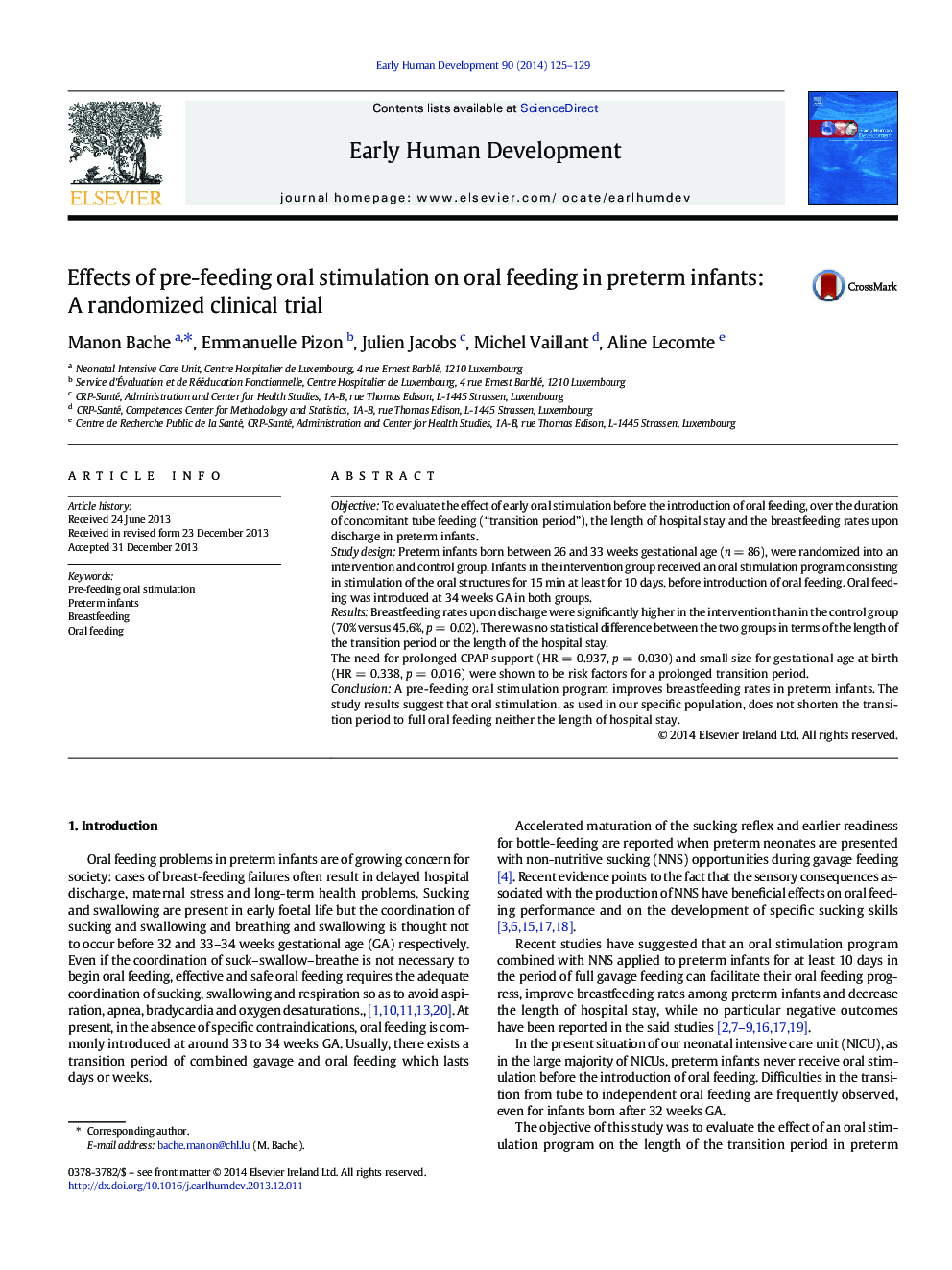| Article ID | Journal | Published Year | Pages | File Type |
|---|---|---|---|---|
| 3918032 | Early Human Development | 2014 | 5 Pages |
ObjectiveTo evaluate the effect of early oral stimulation before the introduction of oral feeding, over the duration of concomitant tube feeding (“transition period”), the length of hospital stay and the breastfeeding rates upon discharge in preterm infants.Study designPreterm infants born between 26 and 33 weeks gestational age (n = 86), were randomized into an intervention and control group. Infants in the intervention group received an oral stimulation program consisting in stimulation of the oral structures for 15 min at least for 10 days, before introduction of oral feeding. Oral feeding was introduced at 34 weeks GA in both groups.ResultsBreastfeeding rates upon discharge were significantly higher in the intervention than in the control group (70% versus 45.6%, p = 0.02). There was no statistical difference between the two groups in terms of the length of the transition period or the length of the hospital stay.The need for prolonged CPAP support (HR = 0.937, p = 0.030) and small size for gestational age at birth (HR = 0.338, p = 0.016) were shown to be risk factors for a prolonged transition period.ConclusionA pre-feeding oral stimulation program improves breastfeeding rates in preterm infants. The study results suggest that oral stimulation, as used in our specific population, does not shorten the transition period to full oral feeding neither the length of hospital stay.
